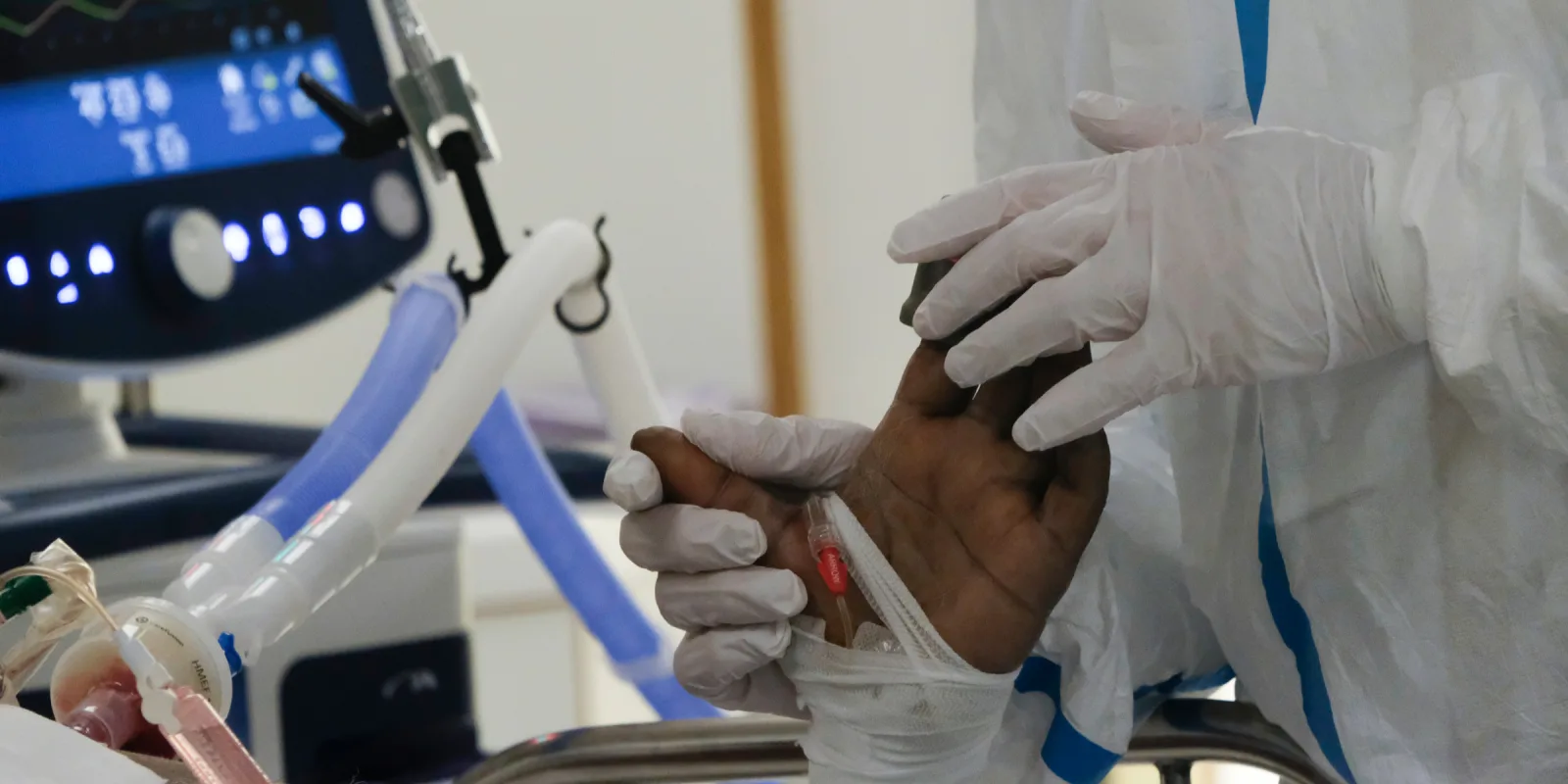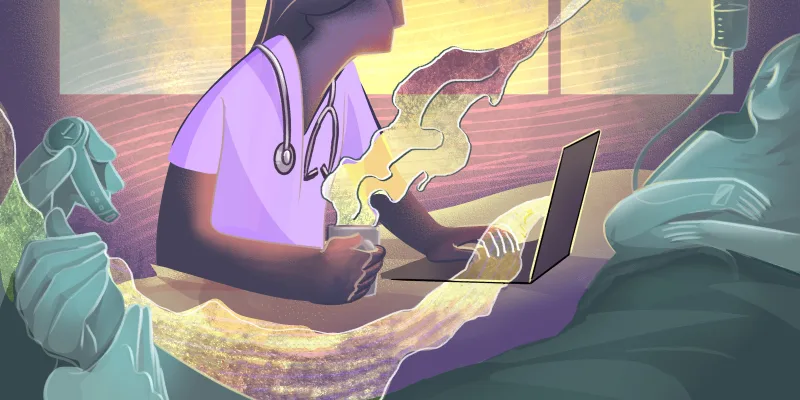“Is there nothing you can do? I just want to see my mother.”
“I’m so sorry. There’s nothing I can do.” My voice sputtered. I could hear tears welling in her eyes. This was heartbreaking. When I entered medical school, I never imagined that one day I would have to enforce a strict no-visitation policy via phone to a distraught family member in the middle of a global pandemic as their loved one died a mere few feet away from me. I wished I could do something.
Primum non nocere — “first, do no harm” — is a central tenet of bioethics. Yet sometimes our best efforts cause more harm than good. Early on during the COVID-19 pandemic, hospitals implemented strict no-visitation policies to little opposition. But as the pandemic has progressed, many hospitals have relaxed their policies to allow greater degrees of visitation. In retrospect, were strict no-visitation policies truly justified? Did they do more harm than good?
While often enacted for good reasons, strict no-visitation policies are not without significant drawbacks. Consider the following ways such policies might harm patients, loved ones, and clinicians:
- Robbing families of universal mourning traditions, many religious in nature.
- Burdening clinicians’ already fatigued shoulders. Many providers consider visitation for a dying patient’s loved ones to be the final gift they can give when all else has failed.
- Removing loved ones’ perspective from clinical care teams. Family members often play a critical role in observation, decision-making, and quality assurance.
- Minimizing an individual’s autonomy by not providing the opportunity to sign a release to see a loved one for a final time. Lest we forget, society permits a wide degree of dangerous activities, if participants sign a waiver.
- Heightening the dysfunctional disconnect between public life and the realities of illness and death.
Despite these harms, many believe the policies to be justified. Some cite liability risk, despite the existence of waivers that would significantly limit the risk of litigation. Most cite transmission risk, though transmission within hospitals has been demonstrated to be thoroughly minimized through adequate PPE.
I was told to inform distraught families they could not see their loved ones because it posed too great a risk to staff and patients. It would have been more difficult — and perhaps more accurate — to say they could not see their loved ones because providing PPE for their visit was not a priority for the hospital. The institution deemed its own financial harm to be of greater importance than the potential harm the policy might cause patients, loved ones, and clinicians. In a sense, hospitals were right to deny visitation, but in a world where priorities translate into realities, hospitals cannot cite circumstances of their own making as victimage.
Why is “first, do no harm” a core ethical principle? Many consider it a self-evident admonition within beneficence. But it reminds us that self-deception is common and dangerous. Broadly accepted under the pretense of beneficence, strict no-visitation policies may have caused serious harm while misdirecting responsibility. How many other policies, uniformly accepted, may be causing harm while misdirecting responsibility under the belief that we are victims of circumstance?
One of the most valuable lessons I’ve relearned during the pandemic is primum non nocere. Strict no-visitation policies vividly exposed how hospital policies can fall victim to knee-jerk reactions and institution-centric thinking. If we fail to take collective responsibility for the harms these policies may have caused, we further minimize the pain our communities may have had to endure. We are not victims of circumstance. We can effect change. We can furnish the necessary equipment to be able to relax our visitation policies. We can recommit to ethical decision-making. We can reaffirm our commitment to “first, do no harm.”
Discuss the merits of hospital no-visitation policies in the comment section below.
David A. Deemer is a fourth-year medical student at Loma Linda University School of Medicine. He completed his Master of Arts in Bioethics at the Loma Linda University School of Religion in June 2020.
Image by Alexandros Michailidis / Shutterstock







